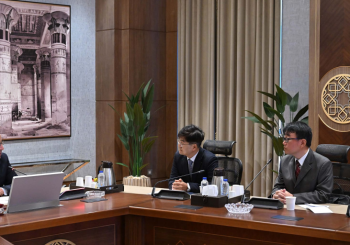Egypt homes over nine million international migrants and refugees from 133 countries, reveals the International Organization for Migration (IOM).
In a press statement published by the renowned non-profit organization on 8 August, the IOM estimated that up to 9,012,582 migrants, or 8.7 percent of the country’s population, consists of migrants.
The IOM’s latest statistics, part of a wider assessment conducted from 2019 to 2022, are based on conducted studies and various embassies’ datasets.
Since 2019, Egypt has seen a steady increase in international migrants due to political and economic instability in the region; currently, 80 percent hail from neighboring countries Sudan (4 million), Syria (1.5 million), Yemen (one million) and Libya (one million).
Up to 56 percent reside in five governorates, Cairo, Giza, Alexandria, Damietta, and Dakahlia. The rest are scattered throughout the country, in a perfectly balanced ratio of men (50.4 percent) and women (49.6 percent).
The average migrant is also 35 years old, further elaborates the UN agency’s press release.
“The Egyptian government’s positive rhetoric towards migrants and refugees may be seen as a magnet for migrants, refugees and asylum seekers to Egypt recently,” it adds.
Currently, refugees and migrants can benefit from Egypt’s public education and free healthcare, placing them “on equal footing with Egyptians, in many instances, despite challenges faced by these sectors, and the heavy economic costs.”
Added benefits include inclusion to Egypt’s vaccination programme against during COVID-19 during the early onset of the pandemic until today.
Nonetheless, the press release also highlights that 15 percent of international migrants in Egypt, between 1.1 to 1,300,000, could be considered ‘vulnerable’ and in need of tailored assistance. Moreover, refugees, especially Black refugees from Sudan, Eritrea, or sub-Saharan Africa, frequently face discriminatory treatment.

Yet, two thirds of migrants (37 percent) are integrated in the workforce, with stable employment. The UN agency’s press release asserts that migrants and migrants contribute positively to the labor market and the growth of the Egyptian economy, a fact often iterated and felt in everyday life.
In the last few years, refugees – main of which from Syria – have successfully managed food businesses, and worked in various industries, with Syrian investments reaching USD 1 billion.






Comment (1)
[…] itself hosts over nine million migrants, according to the International Organization for Migration. Yet a weakening economy and dwindling currency […]